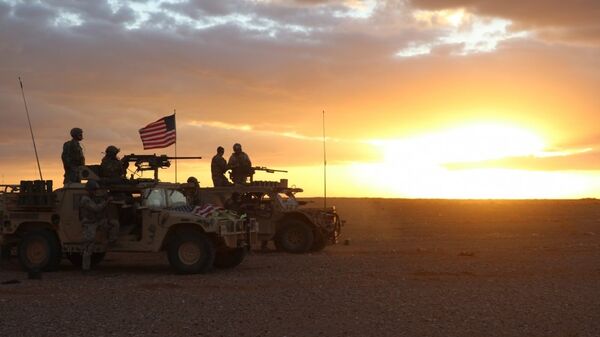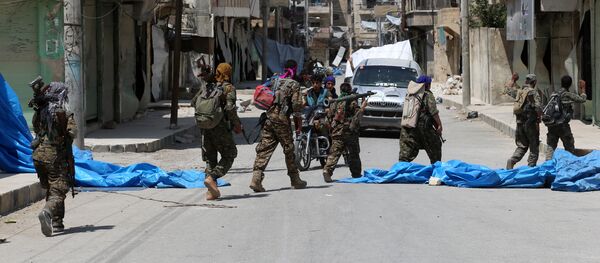Sputnik: The US Defence Department inspector general said that the number of Islamic State [Daesh]* fighters in Iraq and Syria is as high as 30,000. I don't know what President [Donald] Trump considers a defeat, but I think that when the most dangerous terrorist group still has 30,000 fighters, it is not defeated. What are your thoughts about it?
Hamed El Said: Well, we have to remember that the figures for foreign fighters, foreign terrorist fighters in Syria and Iraq were never accurate in the first place and it's always very difficult to get an accurate figure for them for several reasons. There is no question that al-Qaeda* and ISIS [Daesh]* have been inflicted with heavy and serious defeats in both Syria and Iraq; whether they have been eliminated, that's a completely different story. I mean, as you rightly said that many other, even US, officials, are blatantly saying that there are still remnants over there. We don't really know how many exactly; certainly, they have not been totally and completely eliminated and they continue to represent one threat or another currently.
READ MORE: Pence Says Daesh Defeated as Group Claims Credit for Killing US Troops in Manbij
Sputnik: How could the latest attack on US troops in Manbij affect US plans to withdraw troops from the region?
Hamed El Said: As you know very well, both the president and his vice president have after the attacks made it very clear that such an attack will not affect the US decision to withdraw. We have to bear in mind that such an attack, luckily, is very small in terms of the scale and highly unlikely to make a huge punch in the US decision to withdraw.
READ MORE: Trump Vows to Exit Syria Despite Manbij Attack Killing US Soldiers
Sputnik: What is your take on the timetable of the US withdrawal from Syria?
Hamed El Said: This is complicated. It is complicated for [the] reasons you mentioned already. The most important factor is obviously the US official circle is extremely divided over this; we have seen some senior, serious officials resigning as a result of this. The majority of US officials obviously do not feel that the time is right for the US to withdraw from Syria. There is very much worry, obviously, about their allies, the Kurds; they worry about the reaction from the Turkish side and also from the Syrian side as well. And therefore they also feel, at the same time, that even making a decision like this is not very wise, because as Trump said he never wants his enemies to know what his strategies are and he [has] already declared what his strategy in this case is.
READ MORE: Erdogan, Trump Agree to Speed Up Talks on Security Zone in Syria — Ankara
And therefore many American officials feel that it will set in motion enthusiasm for the terrorists, [it] might embolden them and therefore might be responsible for the latest attack in Syria. But I think again, I think that the withdrawal is more complicated than what we're really seeing; I think it will drag on longer than expected. It will also depend on what happens on the ground, particularly with regard to the Kurds and also with regard to what ISIS and other terrorist organisations do and [how they] react and whether we experience and see further, and some serious and larger terrorist attacks against the US and their allies.
Hamed El Said is chair and professor of International Business and Political Economy at the Manchester Metropolitan University Business School, advisor to the United Nations Counter Terrorism Implementation Task Force and to the Arab Thought Forum.
*Daesh (ISIS/ISIL/Islamic State) and al-Qaeda are terrorist groups banned in Russia.
The views and opinions expressed by the speaker do not necessarily reflect those of Sputnik.




